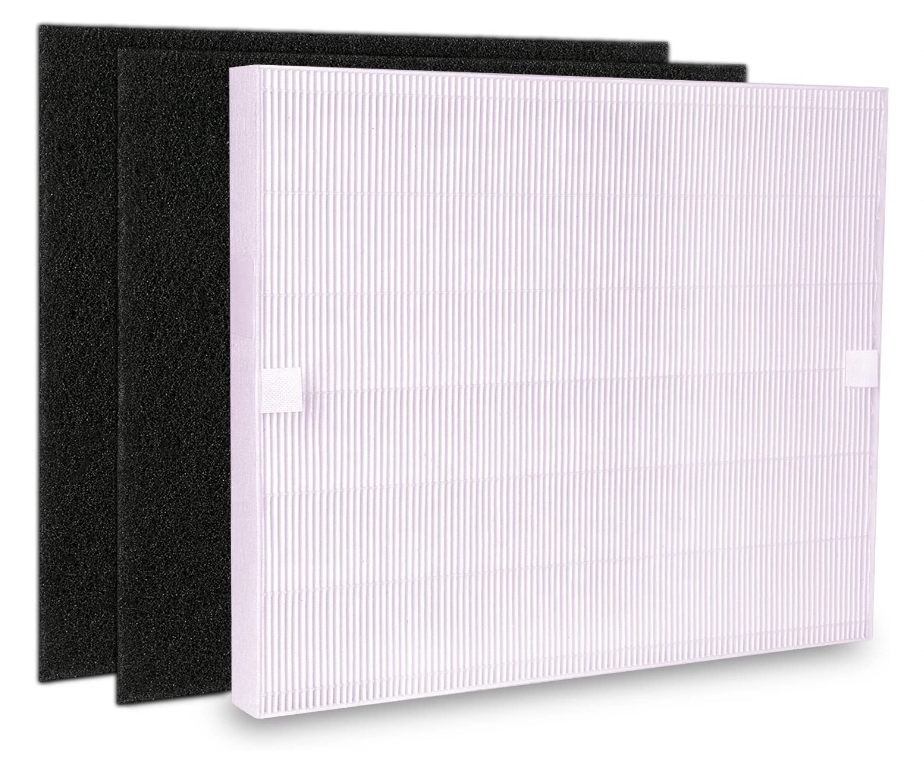Understanding the Excellence of HEPA Filtration Technology
In the quest for cleaner indoor air, HEPA filters have emerged as the undisputed champion of air purification technology. These remarkable filters, which were first developed during the Manhattan Project to capture radioactive particles, have evolved to become the cornerstone of modern air purification systems. Today, HEPA filters are found in everything from household air purifiers to sophisticated medical facilities, demonstrating their unmatched effectiveness in creating healthier indoor environments.
The significance of HEPA filters extends far beyond their technical specifications. They represent a crucial advancement in our ability to protect ourselves from airborne contaminants, allergens, and microscopic particles that can impact our health. As air quality concerns continue to rise globally, understanding why HEPA filters have earned their golden reputation becomes increasingly important for anyone interested in maintaining clean, healthy indoor air.
The Science Behind HEPA Filter Technology
Core Mechanisms of HEPA Filtration
HEPA filters operate through a complex combination of mechanical processes that make them extraordinarily effective at capturing particles. The filtration occurs through four primary mechanisms: interception, impaction, diffusion, and sieving. When air passes through the densely packed fibers of HEPA filters, particles are trapped through these various methods, ensuring comprehensive air cleaning.
The intricate web of fibers in HEPA filters creates a maze-like structure that captures particles as small as 0.3 microns with an efficiency of 99.97%. This size is particularly significant as it represents the most penetrating particle size (MPPS), making HEPA filters exceptionally effective at capturing both larger and smaller particles.
Material Construction and Design Innovation
Modern HEPA filters are constructed using advanced materials, typically incorporating borosilicate glass fibers arranged in a dense mat of randomly arranged fibers. This sophisticated design allows for optimal airflow while maintaining superior filtration capabilities. The pleated design of HEPA filters significantly increases their surface area, enabling them to capture more particles while maintaining efficient air flow.
Recent innovations in HEPA filter technology have led to the development of enhanced materials and designs that improve durability and performance while reducing air resistance. These advancements ensure that HEPA filters maintain their exceptional filtration capabilities while operating more efficiently than ever before.

Performance Standards and Certification
Official HEPA Classifications
True HEPA filters must meet strict standards established by the U.S. Department of Energy. These standards require that HEPA filters remove at least 99.97% of particles measuring 0.3 microns in diameter. This specification has become the global benchmark for high-efficiency air filtration, setting HEPA filters apart from other filtration technologies.
Different grades of HEPA filters exist, ranging from H10 to H14, each with increasing levels of filtration efficiency. Understanding these classifications helps consumers and professionals select the appropriate HEPA filter for their specific needs, whether for residential use or critical applications in medical facilities.
Testing and Verification Processes
The certification process for HEPA filters involves rigorous testing procedures that ensure compliance with established standards. Each filter undergoes extensive evaluation using standardized testing methods to verify its performance under various conditions. This careful scrutiny maintains the integrity of HEPA certification and ensures consistent quality across all certified products.
Regular testing and monitoring of HEPA filters in use also helps maintain their effectiveness over time. Understanding the importance of proper maintenance and replacement schedules ensures that HEPA filters continue to deliver their superior filtration performance throughout their operational life.
Health Benefits and Applications
Medical and Healthcare Settings
In healthcare environments, HEPA filters play a crucial role in maintaining sterile conditions and preventing the spread of airborne pathogens. Operating rooms, isolation wards, and laboratory facilities rely on HEPA filtration systems to create safe environments for patients and healthcare workers alike. The COVID-19 pandemic has further highlighted the importance of HEPA filters in medical settings, where they help reduce the risk of airborne disease transmission.
Beyond hospitals, HEPA filters are essential in pharmaceutical manufacturing, biotechnology laboratories, and other sensitive medical facilities where air purity is paramount. Their ability to capture microscopic particles makes them indispensable in maintaining the stringent air quality standards required in these environments.
Residential and Commercial Benefits
In homes and offices, HEPA filters provide significant benefits for occupant health and comfort. They effectively remove common indoor air pollutants such as dust, pollen, pet dander, and smoke particles. For individuals with allergies, asthma, or other respiratory conditions, HEPA filters can dramatically improve indoor air quality and reduce symptoms.
Commercial spaces benefit from HEPA filtration through improved air quality that enhances employee wellness and productivity. Hotels, restaurants, and retail establishments increasingly recognize the value of HEPA filters in creating healthier environments for their customers and staff.
Future Developments and Innovations
Emerging Technologies
The future of HEPA filter technology looks promising with ongoing research into new materials and designs. Smart HEPA filters with integrated sensors and monitoring capabilities are being developed to provide real-time air quality data and automated performance adjustments. These innovations aim to enhance filtration efficiency while reducing energy consumption.
Researchers are also exploring sustainable materials and manufacturing processes for HEPA filters, addressing environmental concerns while maintaining their superior filtration capabilities. These developments could lead to more eco-friendly options without compromising on performance.
Integration with Smart Home Systems
The integration of HEPA filters with smart home technology represents an exciting frontier in air purification. Connected air purifiers with HEPA filters can now be controlled remotely, automated based on air quality readings, and synchronized with other home systems for optimal performance. This integration provides users with unprecedented control over their indoor air quality management.
Future developments may include artificial intelligence-driven systems that learn from air quality patterns and adjust filtration settings automatically, making HEPA filter technology even more effective and user-friendly.
Frequently Asked Questions
How Often Should HEPA Filters Be Replaced?
HEPA filters typically need replacement every 6-12 months, depending on usage patterns and air quality conditions. However, environments with higher pollution levels or frequent use may require more frequent replacements. Regular monitoring of filter performance and following manufacturer recommendations ensures optimal filtration efficiency.
Can HEPA Filters Remove Viruses and Bacteria?
HEPA filters can capture particles as small as 0.3 microns with 99.97% efficiency, including many bacteria and some viruses. While viruses can be smaller than 0.3 microns, HEPA filters can still capture them effectively when they are attached to larger particles like respiratory droplets.
What Makes HEPA Filters Different from Regular Air Filters?
HEPA filters are distinguished by their ability to capture 99.97% of particles at 0.3 microns, while regular air filters typically capture larger particles with lower efficiency. The dense, specialized construction of HEPA filters, combined with strict certification standards, ensures superior filtration compared to standard air filters.

